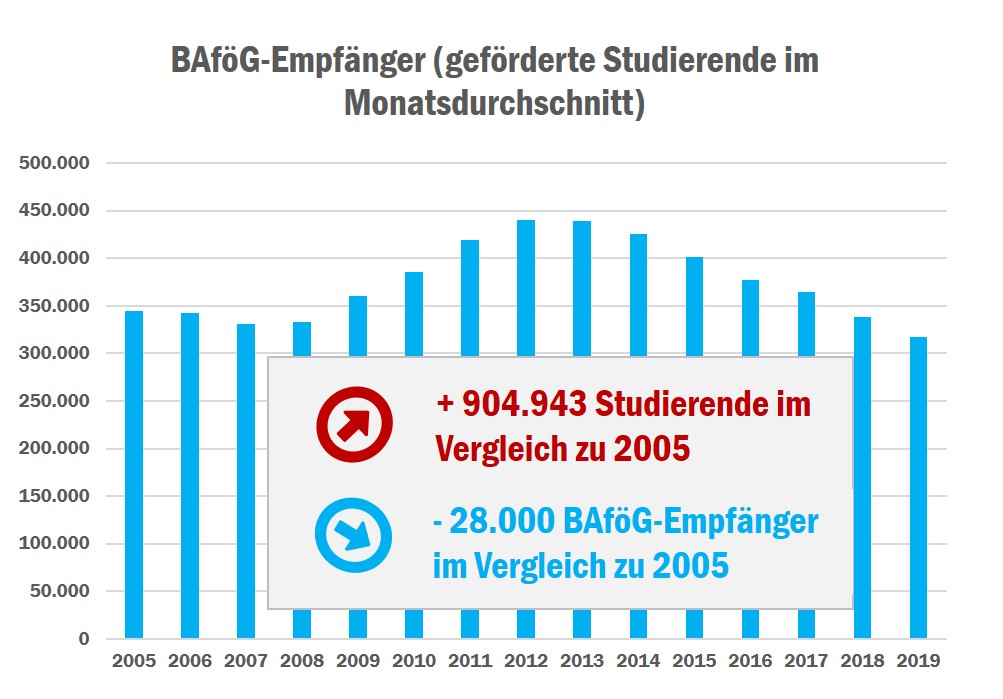
The student population in Germany has increased by almost a million since 2005, but the number of student grant recipients has decreased sharply over the same period. A current CHE publication shows the evolution of the main sources of finance in higher education, and identifies a need for action in respect of student finance.
Students need around €900 per month on average to finance their studies. To this end, they use various sources of finance. The largest contribution comes from students’ parents and income from part-time work during university.
In contrast, the state student loans and grants programme “BaföG”, which was reformed slightly in 2019, continues to decline in importance as an element of student finance. While the student population has increased by 900,000 since 2005, the number of students who receive BAföG fell by as much as 30,000 over the same period. As a result, only 11 per cent of the student body are now BAföG recipients (compared to 17% in 2005). Only a small percentage of students receive a Germany Scholarship, a student loan or a scholarship from an initiative for academically gifted students, each instrument accounting for one per cent.


The student support programmes provided by the federal government during the coronavirus pandemic are also only partially successful. Although around 135,000 monthly-related applications from students were approved by the closure date for bridging aid, the budget of €100 million allocated for these programmes was significantly underutilised.
“In the light of this year’s experience, the established state instruments available to help fund students are rapidly becoming less important,” remarked Ulrich Müller. “Even in times of a pandemic, students prefer to resort to their own initiative and to family savings. The existing individual products and state emergency responses no longer reach the majority of students,” noted the expert on student funding at the CHE Centre for Higher Education. As such, educational opportunities are increasingly dependent on a positive economic climate.
To ensure equal access to higher education in the future, CHE calls for a coherent system of student finance that combines previously incoherent individual elements and covers various eventualities, life situations, educational biographies and study models. “To create a contemporary system of student funding, a first step would have to be to widen BAföG to include support for part-time and continuing education programmes at Master’s level,” stated Müller.
About the publication
The CHE format CHECK, launched in 2019, provides a quick – primarily visual – overview of a variety of topics. CHE compiled recent data from a variety of sources to portray types of funding and their significance for financing studies in Germany in the current winter semester 2020/21. Ulrich Müller and Jan Thiemann wrote the publication entitled “CHECK – Studienfinanzierung in Deutschland 2020” (CHECK – student finance in Germany 2020). The entire visual content is available online in graphic form in the CHE Flickr cloud.
The publication is available in German only.
